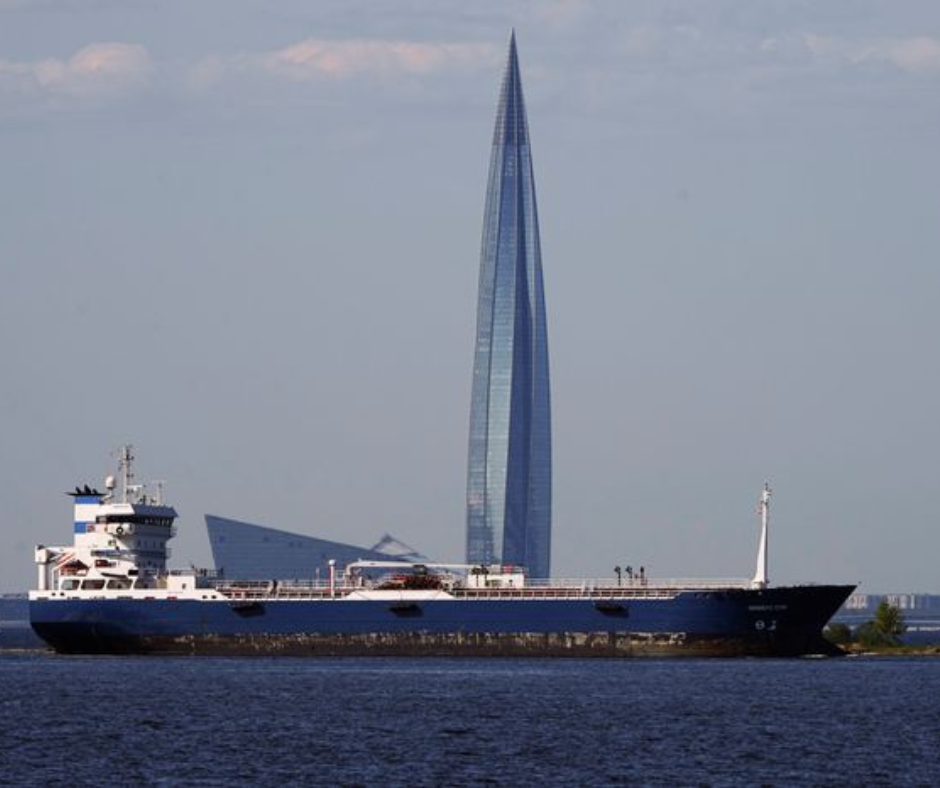European Commissioner for
Financial Stability, Financial Services and Capital Markets Union
Mairead McGuinness
International Special Envoy
for the Implementation of EU Sanctions
David O’Sullivan
Joint appeal of Ukrainian civil society organizations
Dear Ms. McGuinness, dear Mr. O’Sullivan,
We, the undersigned Ukrainian civil society organizations, call on the European Commission, as well as all governments of the sanctions coalition countries, to step up efforts to close the loopholes and ensure the decisive and comprehensive enforcement of the EU embargo on Russian oil and oil products, as well as broader international trade restrictions.
These moves, while long overdue, had significant impact on Russia, as oil exports provide a key revenue stream to the aggressor country that commits countless war crimes in Ukraine for more than a year, grossly violating Geneva Conventions and undermining the international rules-based order. Yet, the oil sanctions regime as of now is not sufficiently enforced and has large loopholes that are undermining the whole effort. It is especially the Russian export of fossil fuels which funds these war crimes, causing daily deaths and horrible human suffering across Ukraine.
As the European Union is preparing to adopt the next, 11th package of sanctions, we urge you to address outstanding issues concerning Russia’s major revenue stream associated with exports of oil, which is still enduring due to existing gaps in the sanctions regime and insufficient enforcement.
Analysis performed by the Centre for Research on Energy and Clean Air (CREA) shows, exports of refined oil products from China, India, Turkey, United Arab Emirates (UAE) and Singapore to oil price cap coalition countries have increased by 11 mln tonnes (+26%) or EUR 18.7 bln (+80% in value terms) in the year since the start of Russia’s invasion compared to preceding 12 months.
In the year following the start of the invasion, seaborne imports of Russian crude oil into China, India, Turkey, UAE and Singapore increased by 140% in volume terms, compared with the 12 month period before the invasion. These five countries are defined as “laundromat” countries, as they are purchasing Russian oil and “laundering” it to products shipped to countries having sanctioned Russian oil.
Among the price cap coalition, the largest importer of oil products from the “laundromat” countries was the EU, whose imports amounted to EUR 17.7 bln. “Laundromat” countries’ exports of oil products increased 80% in value terms and 26% in volume terms to price cap coalition countries, but only rose 2% (or +2.9 million tonnes) to non-price cap countries in the year since the invasion on prior year levels.
CREA analysis also shows that 56% of Russian crude oil shipped to “laundromat” countries has been transported by vessels owned and/or insured by the price cap coalition countries since December 2022 up until the anniversary of Russia’s invasion of Ukraine. This share is 74% for oil products. Europe’s dominance in shipping and marine insurance provides for a strong leverage for limiting Russian oil trade that has yet to be applied.
We urge the EU, US and G7 to act now to close “laundromat” loopholes, and create effective policy and enforcement measures.
We are also alarmed by the results of an investigation published by the Financial Times, which spotlights operations of oil trading company Paramount and its founder Neils Troost, who according to the FT report is standing behind sanctions evasion related to exports of ESPO crude oil from Russian port Kozmino.
Moreover, detailed research performed by Global Witness shows widespread and systemic violations of the price cap regime in the trades of ESPO crude oil at Asian markets, where companies from price cap coalition countries continue trading unchecked. We share the concerns expressed by Global Witness about the lack of enforcement and evidence of ongoing involvement of European companies in unsanctioned trade of Russian oil and request that you engage relevant actors for necessary legal action to stop these practices.
The oil price cap is currently set at a level that is far in excess of Russia’s costs of production, allowing the Kremlin to extract most of the export revenue as tax. Furthermore, the cap is not effective on shipments from Russia’s Far Eastern ports due to lackluster enforcement.
We are aware that the coalition devised the price cap mechanism with the explicit intention of keeping Russian oil flowing, while reducing revenues to the Kremlin. Provided with evidence above, on a factual basis, this approach is inconsistent.
Moreover, it is sorely lacking attention to dreadful climate impacts of the Russian fossil fuel industry. Oil and gas production in Russia has record methane emissions intensity with huge leaks, widespread routine venting and flaring and ignores the urgent calls for immediate reduction from top international expert bodies, such as the methane tracker report by International Energy Agency and the latest summary report from the Intergovernmental Panel on Climate Change. According to the United Nations Environment Program (UNEP) Production Gap Report, global fossil fuel production must be cut by at least 6% per year over the current decade to keep global warming within 1.5°C and prevent the worst impacts of climate change.
In this context, we point to the fact that both export revenues and extraction volumes of Russian fossil fuels must decline and international sanctions must work towards dismantling the Russian fossil fuel industry, not keeping it afloat. Oil and gas production in Russia should be the first avenue for necessary production cuts – both for ending war in Ukraine and mitigating climate change.
We call for tightening the oil embargo against Russia and closing all loopholes with the consistent aim of keeping Russian oil in the ground permanently. In particular, we urge to:
– advocate through political relationships or trade deals to dissuade ally countries from purchasing Russian oil as it is providing finance to Putin’s warchest;
– consider expanding the scope of embargo to include refined oil products from third countries produced from Russian oil to close the “laundromat” gap, with proper enforcement via certificates of origin for primary supply of crude for refining;
– review the oil price cap towards further reduction in order to reflect actual market outlook and prevent the Kremlin from receiving revenues on supplies to “laundromat” countries, and implement effective oversight and enforcement mechanisms;
– ban investments into refineries identified as importing Russian crude oil and exporting oil products likely from Russian origin to price cap coalition countries;
– permanently ban tankers that violate price cap restrictions from entering EU and G7 ports or territorial waters, permanently ban insurance of such tankers;
– introduce restrictions on the sales of tankers, to prevent Russia, its allies and related traders from acquiring old tankers for ‘shadow fleet’ to use to circumvent the price cap;
– require enhanced P&I insurance disclosure and review for any vessels not insured by the International Group of P&I Clubs when passing through the Danish Straits and other EU/G7 territorial waters or exclusive economic zones;
– prohibit transhipment of Russian oil in territorial waters and exclusive economic zones of price cap coalition countries;
– introduce export restrictions on all software, technology and equipment used for the development, production and rehabilitation of oil fields in Russia;
– introduce restrictions on the supply from the EU/G7 countries to the Russian Federation of catalysts for the process of oil refining and petrochemicals, as well as additives for jet and motor fuels and oils used by the military equipment of the Russian Armed Forces in the war against Ukraine.
We hope for your active support in cutting critical money flows that drive both catastrophic climate change and the Russian terrorist state, its military, and the war crimes they perpetuate.
Signatories:
Razom We Stand
NGO Center for international cooperation and project implementation
Ukrainian Climate Network
NGO Ukrainian Energy Freedom Coalition
DiXi Group
NGO Ecoaction
NGO Ecoclub
ICO “Environment – People – Law”
Poltava branch of Public Service of Ukraine
Ukrainian Institute for International Politics
NGO Social Initiative “City of the Sun”
NGO “Pravopolice”
NGO “Institute of Professional Qualifications”
NGO “NOVA energiya”
Confederation of Free Trade Unions of Ukraine (KVPU)
Civil Network OPORA
NGO “Association of Energy Auditors of Ukraine in Residential Housing”
Charity Foundation “Oberig Podillia”
NGO Save Dnipro
NGO Office for the environment
NGO Unique Planet
NGO National Interests Advocacy Network “ANTS”
Human Rights Center “Tree of Life”
NGO “Danube-Carpathian Program”
NGO “Forest Initiatives and Communities” (ForestCom)
National Ecological Center of Ukraine
Institute for Economic Research and Policy Consulting
Institute of Social and Economic Transformation
NGO “Institute of Finance and Law”
NGO “Green World”
Energy Transition coalition
Center for Global Studies “Strategy XXI”
Charitable organization “The Black Sea institute of strategic studies
NGO Zero Waste Society
PO Analysis Centre AUU
Vitsche e.V.











